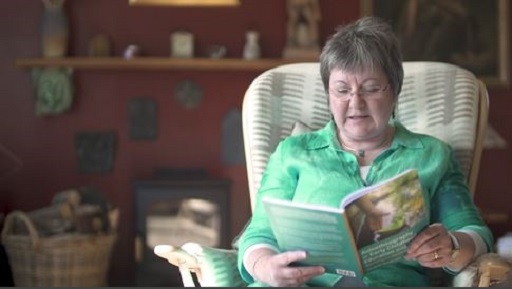4.4 Watching, listening and learning
In the examples in Section 4.3 you have learned about the needs of children who are recovering from specific experiences such as the trauma of war, as well as a visual impairment and an ongoing condition, Down’s syndrome. You will see that there is a need to have knowledge of the experiences and conditions in order to be able to respond to the needs of each child. It is important to be able to recognise their agency, competence and unique way of making sense of the world.
Activity 4.5 Working with Darren
Listen to Elizabeth Henderson describing an experience working with Darren, a young child who had been labelled as violent. This is an account of something that happened many years ago. Reviewing this, Elizabeth reflects deeply on her experience of supporting him.

Transcript: Video 4.4 Working with Darren
Discussion
I am respected and treated with dignity as an individual.
Elizabeth talks about respecting Darren by focusing on the gifts he brings. She looks to understand his experiences and make connections to his behaviour. She treats him as a complex individual responding to a difficult situation. She sees his distress.
I feel safe and I am protected from neglect, abuse or avoidable harm.
Darren has experienced being unsafe and there may be concerns about his mother’s wellbeing. Staff are aware of this and want to support him to make sense of this experience. He is able to acknowledge the difference between himself and his mum, which suggests he feels safe.
I experience warm, compassionate and nurturing care and support.
Elizabeth describes the emotional warmth and care she provides. Emotional labour is hard work.
Now listen to Elizabeth’s reflection on her response to Darren.

Transcript: Video 4.5 Reflection on response
Take time to consider your emotions. Being able to provide nurturing care that is warm and compassionate is hard work. You need to consider your own wellbeing. Consider the safety advice on a flight: make sure your breathing device is fitted before you help a child! To provide the right care for children, you need to care for yourself too.
You can learn more from Elizabeth Henderson by watching a longer interview.

Transcript: Video 4.6 Elizabeth Henderson – Extended interview
Perhaps there is a child you would like to seek extra help for in your setting? Why not try to map out potential support networks for a child you are working with? What are the gaps? What do you need to find out more about? What networks do you need to build? What are the strengths you can focus on?
If you are a Lead Professional, you may want to look in more depth at your role in relation to working with children with ASN. If so, please look at the extension activity at the end of this session.
4.3 Identifying and building a community of support
